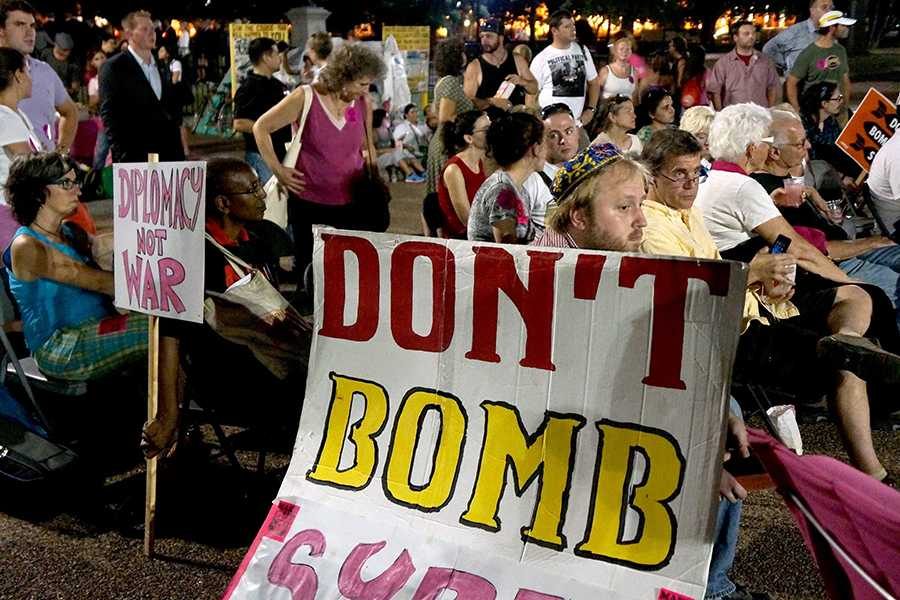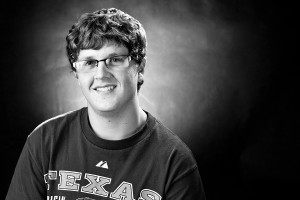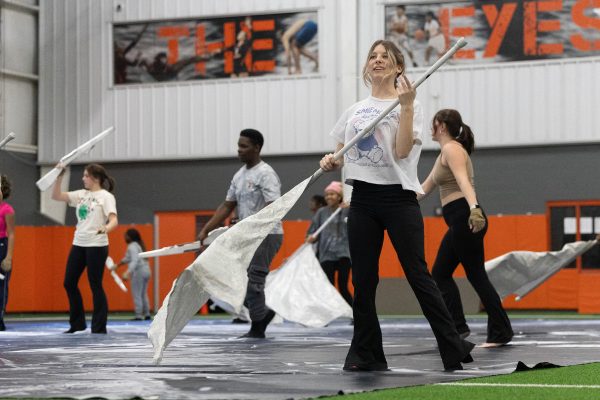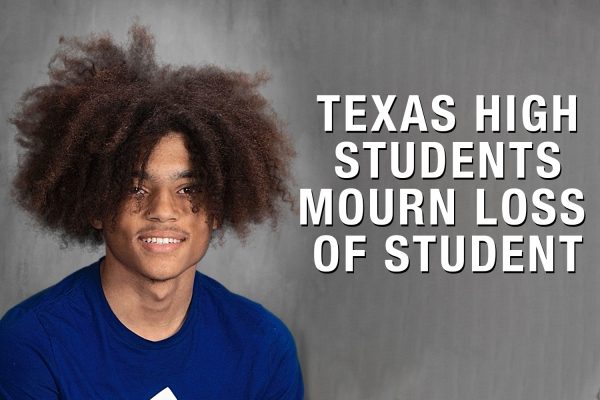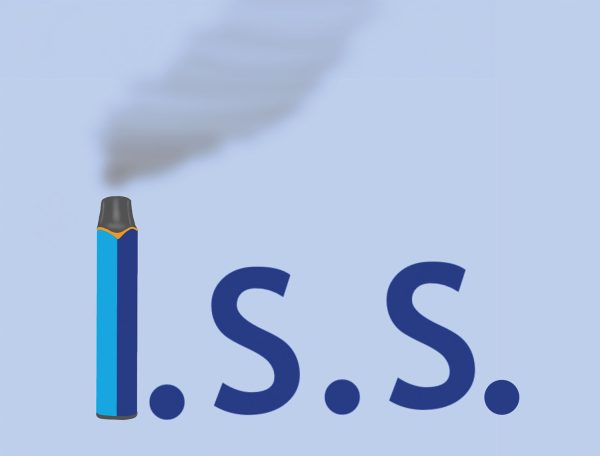Syria makes headlines, not for good reasons
Protesters listen to President Barack Obama’s speech on Syria in Washington, D.C., Tuesday, Sept. 10.
September 11, 2013
Syria is locked in a bloody civil war that has raged for two years––ending more than 70,000 lives in the process. The United States had previously remained indifferent on intervention. Now, in the past week, the Syrian government has used chemical weapons against its own people, and the United States has taken heavy interest in the situation; so, too, have the students here.
The Syrian war has held the gaze of global powers and Americans through its entire duration. Notably, the rumors of inhumane weaponry have circulated in the past few months. This roused U.S. leaders who said that the use of biological weapons would not be tolerated, and those who use them must be punished. Talk of war circulated.
However, President Barack Obama, in his address to the nation Tuesday, delayed a military strike, hoping to focus on diplomatic solutions.
Yet, many Americans, including those in the student body, are worried of another Afghanistan or Middle East crisis.
“I think the Middle East conflict is an uphill battle that we can’t win whatsoever,” junior Caleb Lacy said. “I do not think it would be wise for America to engage in a war with Syria, unless it is absolutely necessary.”
But even with this feeling of anxiety, some Americans and students alike do not approve of Syria’s use of biological weapons. They feel that these war crimes must be addressed.
“I don’t think breaking international law should go unpunished because it might make other countries think nothing will happen if they do the same,” junior Tannor Parrot said. “However, America should not be the one to execute this punishment.”
Even with Obama’s wish for diplomacy, some feel we should be involved at all.
“In all honesty, I don’t believe we should become involved in the Syrian crisis simply because it is too risky,” senior David Nguyen said. “We still don’t know the true motives for Syria to commit this atrocity, and, from that, we have no idea what they’re capable of. So our sight of ‘victory’ is pretty unclear.”
If war does occur, and it becomes another Afghanistan, students who enlist in the military face the possibility of a tour in Syria.
“If you’re 16 or 17 years old, and you need to know why you’re being hauled off to war, it would be nice to know what the origins of it were,” U.S. History teacher Chuck Zach said. “Because if indeed the administration decides to retaliate against the Syrian government for [its] use of chemical weapons against Syrian rebels, we could end up in a full scale war in the Middle East.”


